-
Posts
15617 -
Joined
-
Days Won
12
Content Type
Profiles
Forums
Store
Downloads
Recruiting - 2020
2019-2020 Football Season
Football
Entertainment
Sports
News and Business
Cloak Room
Transfer Portal
Recruiting
Events
Posts posted by bolverk
-
-
Thought experiment:
Let's game this out from the perspective of the ayatolla and the mullahs, assuming they want to A) continue living and B) stay in power. What should they do?I mean, they don't have a lot of friends that could do shit to help at the moment (SYRIA - gone as an ally; HEZBOLLAH - neutered; HAMAS/RUSSIA - kinda tied up for the moment; HOUTHIS - no real "reach") and even fewer military options (fight to the last man or last ballistic, I guessin the hope of drawing Israel/the US into costly on-the-ground fighting but this would inevitably lead to losing power, which kinda goes against assumption B from above).
Almost every imaginable outcome from continuing to fight is terrible for them.
If I were them, I think I'd go ahead and renounce any domestic uranium enrichment program tout de suite as a first gambit in hopes of immediately stopping the bombs and eliminating the initial justification for the war and, therefore, increasing international pressure on the Netanyahu and Trump regimes to announce a ceasefire.
Would that be enough?
I guess it might be enough to get Trump to simmer down for a short bit and give isolationist Republicans and Democratic doves enough time to pass a resolution requiring congressional approval for US strikes with WMDs off the table. It's a long shot for a couple of CR reasons, but at this point, I can't think of any other "play" for them that meets the two requirements: staying alive and in power.
NOTE: I'm not addressing the long-term implications of this, only the short-term avoidance of more bombs and regime change, which I assume is what a smart, rational actor would want (Yeah, yeah, I know, "But Bolverk, they're not rational!" Come on, man, it's just a thought experiment that might help the Surly hivemind think shit through without us all hating each other more than we already do).
Anyone else got other takes on what they might do or flaws in the above?
-
 4
4
-
-
6 hours ago, InkaUtexas said:
Yes and no. It is where Saudi's have had some big issues, and why they hate Iran even more. I don't see them rising up for their Shia brothers and risk getting carpet stomped, which the Saudi's would do.
Also there was a little dust up in Mecca in 1979 that gets overlooked by the West. (Shitty video, not any good ones out there I have found, but you get the point.)
Thanks for the YouTube link. I was only 8 when that happened and had forgotten all about it, but it brought back some really vague memories, as my dad religiously watched the news at dinnertime. What I had no idea about was how it altered Saudi domestic affairs and empowered the Wahabbi clerics, which in turn, no doubt, radicalized a bunch of Muslims and possibly contributed to a lot of shit the world has been experiencing since then.
It’s remarkable how a single incident like that could have the power to alter the course of world events in unforeseeable ways.
-
 1
1
-
-
One final question to anyone in particular before I take off for a while: What's the likelihood of Saudi's own Shiite population getting all hot and bothered by this stuff? It seems there's a big concentration of them in the eastern part of that country. I realize they're Arabs, not Persians, but do they feel beholden to, or loyal to, Iran or any place in it, like Sunnis do Mecca/Medina?

-
 1
1
-
-
2 minutes ago, InkaUtexas said:
Yes, there are Baluchi's there, but also other Sunni groups. Agree there would be some ideological differences. And external influence (Look north and west). Baluchis have always wanted their own place. They are a pretty big ass tribe sitting on some valuable land. Here is what they claim. Some pretty damn important ports, but also a lot of Chinese investment.
No, it would not look good, and why I said no US troops. Canadians, Nordics, they do not carry the animosity. Sure high level of force protection, but it can be done. That is why you have contractors to protect those sites.
Israel? yeah, they are not going to pay shit, but the Gulf Arabs will. They can fun reconstruction. They need the good press in the Shia world. Let each country adopt a province. They will try to outdo each other so hard.
Risks-
Iran breaks up into regions controlled by warlords. Make sure people have jobs and they tend to not fight. We failed at that in both Afghanistan and Iran relying on third country nationals for even down to the most basic jobs.
Limit the Influx of foreign private capitol from Iranian diaspora. This tends to change the national make up a lot. Limit what they can do. If you create an Iranian first policy, make residency a requirement.
I appreciate your patience in responding to my multiple "just asking questions" posts, but if we're going down this road to toppling another government, I'd really like us to have thoroughly discussed the consequences in addition to the casus belli.
Bolded would be my biggest worry. You know far more about the region than I ever will, so I'll take your word about the Kurds remaining peaceful, not trying to break away, and I had some idea about the folks in SE Iran already.
How about all these other groups, though? Do any of the others have breakaway tendencies, or do other neighboring countries have revanchist claims on Iranian territory?
-
9 minutes ago, InkaUtexas said:
Most of the country is Shia, so except for the SE I don't think you will see sectarian violence. There expect more terror hits (bombings, assasinations, Pakistani involvement).
Kurds will be quiet and want to be part of any coalition. See Syria.
Best thing that we could send in would be an Iranian academic who has lived in Sweden and not seen as tainted by US backing. No Beltway boys.
Keep US Boots limited, like we did the early days in Afghanistan. Massive rapid development projects. Simple shit people need. Food, medical, power. Fix irrigation. USAID has all those tools ready. Oh wait.
So who would lead a Peacekeeping force? Cannot be US, Arab (Sunni) and doubt we would let China. Russia will want to but cannot project the force so would be like us, small troops and an "advisory" force. This was similar to the initial days in Afghanistan. Canada could lead backed by Latin America, the Nordic states, some Africans to augment.
Right, no sectarian violence, but there could absolutely be strong ideological differences. It's not like there isn't an example of the last Shah being deposed. And as for SE Iran, isn't that area dominated by Baluchis, the same group that's in western Pakistan? Haven't those guys been in some kind of low-level rebellion against the Pakistani government? If so, what's the risk of them uniting and trying to break off from both Iran and Pakistan to create their own country?
And, then of course, the installation of western troops (US or otherwise spread out trying to protect the oil & gas fields, as well as all the downstream infrastructure: refineries, pipelines, etc. Are Americans prepared to see US soldiers getting bombed protecting all those assets and facilities?
Finally, what's the obligation of the Israelis under the principle of "you broke it; you fix it" if they're successful in their push for regime change? Obviously, they're not going in as occupiers, but should they pay some of the bills since they're the lead in all this?
-
 1
1
-
-
If Netanyahu's goal is not only the destruction of Iran's capacity to build nuclear weapons -- and I believe it is, given the expansion of targets beyond those sites (e.g., state TV) AND his repeated calls for the Iranian people to rise up -- what's the on-the-ground situation in Iran if they/we are successful in toppling the regime?
Recall the power vacuum left in Iraq when the Baathists were taken out, instability in Syria during their civil war, and the subsequent rise of ISIS in the region. What's the plan for nation-building after a war for regime change? Are we confident that the people would support the son of the Shah? What happens with all the nuclear material that Iran has built up?
I sure hope Israel/US has a plan for that, if it is indeed the goal.
-
 1
1
-
 1
1
-
-
According to this poll discussed in an Israeli newspaper, it seems most Israelis are A-OKAY with ethnic cleansing in the occupied territories, and about half are in favor of outright genocide.

A recent survey of Israeli Jews reveals a growing comfort with the idea of forcibly expelling Palestinians – both from Gaza and from within Israel's borders. The poll also found that a significant minority supports the mass killing of civilians in enemy cities captured by the Israeli army. These disturbing trends reflect the radicalization of religious Zionism since Israel's 2005 withdrawal from Gaza, and the failure of secular Israeli Jews to articulate a vision that challenges Jewish supremacy.
Commissioned in March by Pennsylvania State University and conducted by Tamir Sorek for the Israeli polling firm Geocartography Knowledge Group, the survey polled a representative sample of 1,005 Jewish Israelis. It posed a series of "impolite" questions – topics typically avoided in mainstream Israeli polling – about the Israeli-Palestinian conflict.
According to the results, 82 percent of respondents supported the expulsion of Gaza's residents, while 56 percent favored expelling Palestinian citizens of Israel. These figures mark a sharp rise from a 2003 survey, in which support for such expulsions stood at 45 percent and 31 percent, respectively.
Religious interpretations play a key role in shaping these views. Nearly half (47 percent) of respondents agreed that "when conquering an enemy city, the Israel Defense Forces should act as the Israelites did in Jericho under Joshua's command – killing all its inhabitants." Sixty-five percent said they believed in the existence of a modern-day incarnation of Amalek, the Israelite biblical enemy whom God commanded to wipe out in Deuteronomy 25:19. Among those believers, 93 percent said the commandment to erase Amalek's memory remains relevant today.


This apocalyptic rhetoric has found fertile ground in religious Zionist circles, where leaders have long advocated for such extreme policies.
One of the most influential figures to call for such policies is Rabbi Yitzchak Ginsburgh, head of the Od Yosef Chai Yeshiva in the West Bank settlement of Yitzhar. In January 2005, just before Israel's dismantling of its Gaza settlements, Ginsburgh delivered a sermon near the Knesset that laid out a vision fundamentally at odds with the secular Zionist ideal of a "Jewish and democratic state."
Ginsburgh gained notoriety for his pamphlet "Baruch Hagever" ("Baruch the Man"), which praised Baruch Goldstein, the settler who massacred 29 Muslim worshippers in Hebron's Cave of the Patriarchs in 1994. Following the assassination of Prime Minister Yitzhak Rabin in 1995, Ginsburgh was placed under administrative detention. He later endorsed a book that sanctioned the killing of non-Jewish women and children.
Unlike the early leaders of the Gush Emunim settler movement, Ginsburgh views any Palestinian presence in the Land of Israel as a desecration of God's name.
His 2005 sermon, now known as "Time to Crack the Nut," was a call to embrace Jewish supremacy in the Land of Israel. It prepared his followers for mass violence and ethnic cleansing – policies that, two decades later, appear to be unfolding in Gaza. With Ginsburgh's vision seemingly coming to fruition, it is worth revisiting the ideological framework he proposed.
This is a long piece. It goes on about the history of this Ginsburgh guy and his movement, but in all the discussions on this board, we rarely talk about the radicalization that's taking place among Israel's population (free link): https://archive.is/lRf9g
-
 3
3
-
-
Israeli tanks kill 59 people in Gaza crowd trying to get food aid, medics say
CAIRO/GAZA, June 17 (Reuters) - Israeli tanks fired into a crowd trying to get aid from trucks in Gaza on Tuesday, killing at least 59 people, according to medics, in one of the bloodiest incidents yet in mounting violence as desperate residents struggle for food.
Video shared on social media showed around a dozen mangled bodies lying in a street in Khan Younis in the southern Gaza Strip. The Israeli military, at war with Hamas-led Palestinian militants in Gaza since October 2023, acknowledged firing in the area and said it was looking into the incident.
Witnesses interviewed by Reuters said Israeli tanks had launched at least two shells at a crowd of thousands who had gathered on the main eastern road through Khan Younis in the hope of obtaining food from aid trucks that use the route.
"All of a sudden, they let us move forward and made everyone gather, and then shells started falling, tank shells," said Alaa, an eyewitness, interviewed by Reuters at Nasser Hospital, where wounded victims lay sprawled on the floor and in corridors due to the lack of space.
"No one is looking at these people with mercy. The people are dying, they are being torn apart, to get food for their children. Look at these people, all these people are torn to get flour to feed their children."
Palestinian medics said at least 59 people were killed and 221 wounded in the incident, at least 20 of them in critical condition. Casualties were being rushed into the hospital in civilian cars, rickshaws and donkey carts. It was the worst death toll in a single day since aid resumed in Gaza in May.
In a statement, the Israeli military said: "Earlier today, a gathering was identified adjacent to an aid distribution truck that got stuck in the area of Khan Younis, and in proximity to IDF troops operating in the area.
"The IDF is aware of reports regarding a number of injured individuals from IDF fire following the crowd’s approach. The details of the incident are under review. The IDF regrets any harm to uninvolved individuals and operates to minimise harm as much as possible to them while maintaining the safety of our troops."
Medics said at least 14 other people were also killed by Israeli gunfire and airstrikes elsewhere in the densely populated enclave, taking Tuesday's overall death toll to at least 73.
Funeral of Palestinians killed in what the Gaza health ministry says was Israeli fire near a distribution center in Rafah, in Khan Younis
The health ministry said 397 Palestinians, among those trying to get food aid, had been killed and more than 3,000 were wounded since late May.
The incident was the latest in nearly daily large-scale killings of Palestinians seeking aid in the three weeks since Israel partially lifted a total blockade on the territory it had imposed for nearly three months.
Israel has been channelling much of the aid it is now allowing into Gaza through a new U.S.- and Israeli-backed group, the Gaza Humanitarian Foundation, which operates a handful of distribution sites in areas guarded by Israeli forces.
The United Nations rejects the system as inadequate, dangerous and a violation of humanitarian impartiality rules. Israel says it is needed to prevent Hamas fighters from diverting aid, which Hamas denies.
Gaza authorities say hundreds of Palestinians have been killed trying to reach GHF sites.
The GHF said in a press release late on Monday that it had distributed more than three million meals at its four distribution sites without incident.
The Gaza war was triggered in October 2023, when Palestinian Hamas militants attacked Israel, killing 1,200 people and taking 251 hostages, according to Israeli allies. Israel's subsequent military assault on Gaza has killed nearly 55,000 Palestinians, according to Gaza's health ministry, while displacing nearly the entire population of 2.3 million and causing a hunger crisis.
Since last week, Gaza Palestinians have kept an eye on the new air war between Israel and Iran, which has long been a major supporter of Hamas.
Gaza residents have circulated images of buildings in Israel wrecked by Iranian missiles, some saying they are happy to see Israelis experiencing a measure of the fear of airstrikes that they have endured for 20 months.
-
 5
5
-
-
2 minutes ago, cmontexas said:
I used to bullseye womp rats in my T-16 back at home

-
 1
1
-
 6
6
-
-
Apologies if this has already been thoroughly covered by the talking heads teevee (I don't watch cable news), but I thought this covered the challenge of taking out the Fordo site pretty well.
Iran’s Best-Protected Nuclear Site Is Deep Underground
Only the U.S. military has the 30,000-pound bomb capable of reaching the facility and the bomber that can carry it.QuoteIran’s most heavily fortified nuclear site, Fordo, was built deep inside a mountain to protect it from an attack. Only the U.S. military has the 30,000-pound bomb capable of even reaching it.
The bomb is commonly known as a “bunker buster” because it is designed to destroy deep underground bunkers, or well-buried weapons in highly protected facilities. It is believed to be the only air-delivered weapon that would have a chance of destroying the site.
The bomb has a much thicker steel case and contains a smaller amount of explosives than similarly sized general-purpose bombs. The heavy casings allow the munition to stay intact as it punches through soil, rock or concrete before detonating.
Its size — 20 feet long and 30,000 pounds — means that only the American B-2 stealth bomber can carry it.
Conventional wisdom has been that Israel can’t destroy Fordo on its own. The United States has blocked Israel from getting the bunker buster, and while Israel has fighter jets, it has not developed heavy bombers capable of carrying the weapon.
But Israel can come close by hitting more accessible power generation and transmission plants that help run the facility, which contains Iran’s most advanced centrifuges, military officials said.
In conjunction with Israel’s aerial bombardment of Iran, going after the Fordo-adjacent plants could significantly slow down the ability of Iran’s most protected nuclear facility to keep enriching uranium.
The Israel Defense Forces and covert operatives could also look for other ways to disable the site, including destroying the entrance to it.
Attacking Fordo is central to any effort to destroy Iran’s ability to make nuclear weapons. In March 2023, the International Atomic Energy Agency reported that it had discovered uranium that had been enriched to 83.7 percent purity in Fordo — close to the enrichment level, 90 percent, necessary for nuclear weapons.
Iran, which is a signatory to the Nuclear Nonproliferation Treaty, has maintained that its nuclear program is for peaceful purposes.
The U.S. Air Force is moving refueling tankers, aircraft and additional warplanes to support any additional American operations in the Middle East, U.S. officials said.
But President Trump has not, at the moment, moved to reverse years of American policy on providing Israel with the bunker buster bombs.
“We’ve had a policy for a long time of not providing those to the Israelis because we didn’t want them to use them,” said Gen. Joseph Votel, who was commander of U.S. Central Command during Mr. Trump’s first term. Instead, the United States viewed its bunker buster bomb largely as a deterrent, a national security asset possessed only by America, but not one that, if made available, might encourage Israel to start a war with Iran.
Iran built the centrifuge facility at Fordo knowing that it needed to bury it deep to prevent it from being attacked. In 1981, using F-15 and F-16 fighter jets, Israel bombed a nuclear facility near Baghdad as part of its effort to stop Iraq from acquiring nuclear weapons. That facility was above ground.
“The Iranians fully understood that the Israelis would try to get inside their programs and they built Fordo inside of a mountain a long time ago to take care of the post-Iraq problem” presented by the 1981 strike, said Vali Nasr, an Iran expert who is a professor at Johns Hopkins University.
Over the years, the Israelis have cooked up a variety of plans to attack Fordo in the absence of U.S.-supplied bunker busters. Under one of those plans, which they presented to senior officials in the Obama administration, Israeli helicopters loaded with commandos would fly to the site. The commandos would then fight their way inside the facility, rig it with explosives and blow it up, former U.S. officials said.
Israel successfully mounted a similar operation in Syria last year when it destroyed a Hezbollah missile production facility.
But Fordo would be a much more dangerous endeavor, military officials said.
American officials say now that Israel has gained air supremacy over much of Iran, Israeli attack planes could circle over Fordo and render it inoperable, at least temporarily, but not destroy it.
“The Israelis have sprung a lot of clandestine operations lately, but the physics of the problem remain the same,” said Gen. Kenneth F. McKenzie Jr., who was in charge of the Iran war plans when he ran the Pentagon’s Central Command after General Votel. “It remains a very difficult target.”
David A. Deptula, a retired three-star Air Force general who planned the American air campaigns in Afghanistan in 2001 and in the 1991 Persian Gulf War, agreed that Israel has options that would not require American help.
For example, Israeli special forces “could insert/apply or otherwise use a variety of means to disable the facility,” he said.
Yechiel Leiter, Israel’s ambassador to the United States, hinted at those options on Sunday on ABC News’s “This Week.”
“We have a number of contingencies, which will enable us to deal with Fordo,” he said. “Not everything is a matter of taking to the skies and bombing from afar.”
Even if Mr. Trump were to authorize American B-2 stealth bombers to drop the 30,000-pound bombs, General McKenzie said, there would be several technical, highly classified challenges in coordinating such a strike with Israel.
A decision to use the American bunker busters would also have huge international consequences, General Votel said. For one, there could be nuclear contamination from such a bombardment that could endanger civilians.
“I think there would also certainly be fallout internationally over the idea that the United States joined Israel in what would be viewed as an illegal attack on the sovereignty of Iran,” General Votel added.
And Iran could widen its retaliation to U.S. troops and other American targets in the region and beyond, military analysts say. The United States would be back on war footing in the region.
Mr. Trump has made clear that he has little interest in more military misadventures in the region, and he is seeking not to alienate a noninterventionist wing of supporters firmly opposed to more U.S. involvement in a Middle East war.
In a separate article discussing the political calculus on whether the US should enter the fray (which I am not posting here to avoid a CR discussion), there was additional detail about the use of MOAB on the site to take out the facility that I thought was interesting, bolded below:
There is only one weapon for the job, experts contend. It is called the Massive Ordnance Penetrator, or the GBU-57, and it weighs so much — 30,000 pounds — that it can be lifted only by a B-2 bomber. Israel does not own either the weapon or the bomber needed to get it aloft and over target.
If Mr. Trump holds back, it could well mean that Israel’s main objective in the war is never completed.
“Fordo has always been the crux of this thing,” said Brett McGurk, who worked on Middle East issues for four successive American presidents, from George W. Bush to Joseph R. Biden Jr. “If this ends with Fordo still enriching, then it’s not a strategic gain.”
That has been true for a long time, and over the past two years the U.S. military has refined the operation, under close White House scrutiny. The exercises led to the conclusion that one bomb would not solve the problem; any attack on Fordo would have to come in waves, with B-2s releasing one bomb after another down the same hole. And the operation would have to be executed by an American pilot and crew.
https://www.nytimes.com/2025/06/16/us/politics/trump-iran-diplomacy-conflict.html-
 3
3
-
 1
1
-
-
Trump sees peace between Iran and Israel soon, eyes Putin role
WASHINGTON, June 15 (Reuters) - Despite evidence that the conflict between Israel and Iran is escalating, U.S. President Donald Trump expressed optimism on Sunday that peace would come soon and cited the possibility that Russia's Vladimir Putin could help.
In a social media post, Trump said there were many unspecified meetings about the issue happening and encouraged the two countries to make a deal. And in an interview with ABC News, he said he was open to Putin, whose forces invaded Ukraine and who has resisted Trump's attempts to broker a ceasefire with Kyiv, serving as a mediator.
Israel and Iran launched fresh attacks on each other overnight into Sunday, killing scores.
"Iran and Israel should make a deal, and will make a deal," Trump wrote on his Truth Social site. "We will have PEACE, soon, between Israel and Iran! Many calls and meetings now taking place."
Trump did not offer any details about the meetings or evidence of progress toward peace. His assertion contradicted comments by Prime Minister Benjamin Netanyahu, who said on Saturday that Israel's campaign against Iran would intensify.
A White House spokeswoman did not immediately respond to a request for comment on how Trump and the White House were working to de-escalate the situation in the Middle East.
Trump told ABC News that Iran wanted to make a deal and indicated something like the Israel strikes would accelerate that. "Something like this had to happen because I think even from both sides, but something like this had to happen. They want to talk, and they will be talking," Trump said, according to ABC reporter Rachel Scott. "May have forced a deal to go quicker, actually."
The United States has engaged in talks with Iran about its nuclear program and Trump has told reporters previously that the talks were going well. But another round of discussions scheduled for Sunday in Oman was canceled after the Israeli and Iranian strikes.
Trump said he and Putin had discussed the situation in the Middle East on Saturday in a call that focused more on that conflict than the Russian war in Ukraine.
"He is ready. He called me about it," Trump said about Putin serving as a mediator, according to Scott. "We had a long talk about it. We talked about this more than his situation. This is something I believe is going to get resolved."
Trump, who portrays himself as a peacemaker and has drawn criticism from his political base for not being able to prevent the Israel-Iran conflict, cited other disputes that he took responsibility for solving, including between India and Pakistan, and lamented not receiving more praise for doing so.
"I do a lot, and never get credit for anything, but that’s OK, the PEOPLE understand. MAKE THE MIDDLE EAST GREAT AGAIN!" he wrote on Truth Social.
-
 1
1
-
-
Trump Renews Embrace of Putin Amid Rift With Allies
President Trump opened his remarks at the Group of 7 gathering of industrialized nations by criticizing the decision to expel Russia from the bloc after Moscow’s 2014 “annexation” of Crimea.President Trump could have opened by talking about trade. He could have discussed the wars in the Middle East or the long-running, brutal war in Ukraine.
But there was something else that appeared to be top of mind for Mr. Trump during Monday’s meeting in Canada of the leaders of the Group of 7 industrialized nations: President Vladimir Putin of Russia.
“The G7 used to be the G8,” Mr. Trump told reporters, referring to the group’s decision to eject Russia in 2014, after it attacked Ukraine and “annexed” Crimea, a prelude to its full-scale invasion.
He went on to blame former President Barack Obama and former Prime Minister Justin Trudeau of Canada for kicking Russia out, and argued that its inclusion in the group would have averted the war in Ukraine. (Mr. Trump was wrong — it was not Mr. Trudeau, but rather Stephen Harper, who was the Canadian prime minister at the time of Russia’s expulsion.)
“I would say that was a mistake,” Mr. Trump said, “because I think you wouldn’t have a war right now.”
And with that, Mr. Trump’s troubled history with the alliance repeated itself. When he attended the summit the last time it was held in Canada, in 2018, he called for Russia to be readmitted to the alliance. The suggestion angered and appalled allies, setting off a rift before Mr. Trump left the summit early, telling reporters on his way out: “They should let Russia come back in. Because we should have Russia at the negotiating table.”
Mr. Trump’s remarks came one day before he was supposed to meet in Canada with Ukraine’s president, Volodymyr Zelensky, whom Mr. Trump has repeatedly criticized for the invasion of his country and has even accused of not wanting the war to end.
The White House announced on Monday that Mr. Trump would leave the summit early and return to Washington to deal with the war between Israel and Iran. In a recent interview, Mr. Trump said he was open to having Mr. Putin serve as a mediator in the Middle East conflict.
cont'd:
SpoilerMr. Trump’s argument on Monday was even more remarkable given that he returned to the summit three years after Russia escalated the aggression that got it ejected in the first place — launching an unprovoked invasion of Ukraine in 2022, with similar goals of seizing its territory.
The scene on Monday illustrated how even more aligned Mr. Trump has grown with the Russian autocrat since his first time in office, and how alienated Mr. Trump has become from American allies who have rallied around Ukraine.
Asked about Mr. Trump’s decision to open his remarks at the summit by criticizing Mr. Putin’s expulsion from the bloc, a White House official, who spoke on condition of anonymity to discuss sensitive matters, said Mr. Trump had long held that view and would share his opinion even if he were meeting with global leaders who feel differently.
Mr. Trump, in his remarks on Monday, repeated a claim he made in 2018, that the Group of 7 needed Mr. Putin to help solve some of the world’s problems — including ones the Russian leader himself caused. “You spend so much time talking about Russia, and he’s no longer at the table,” Mr. Trump said.
John Bolton, Mr. Trump’s former national security adviser, said Mr. Trump’s multiple calls for Russia to rejoin the alliance indicated his lack of knowledge about the history of the bloc. Mr. Bolton accompanied Mr. Trump to the 2018 summit, where a memorable photo emerged of Mr. Trump seated across from other world leaders with his arms folded in defiance.
“Never seemed to understand that Russia had been kicked out of the G8 for invading Ukraine,” Mr. Bolton said. He said Mr. Trump also could not comprehend that the partnership “was a group of like-minded industrial democracies. Apparently, still doesn’t understand.”
On Monday, Mr. Trump eventually issued statements and answer questions on Iran and trade. But he began by boasting about his close relationship with Mr. Putin.
“Putin speaks to me; he doesn’t speak to anybody else,” Mr. Trump said, “because he was very insulted when he got thrown out at the G8, as I would be, as you would be, as anybody would be.”
Mr. Trump has spoken with Mr. Putin regularly, as recently as Saturday, when he said that the Russian leader had called him to wish him a “Happy Birthday” and spent more time discussing the Iranian-Israeli conflict than the war he started.
“Our G7 partners are likely to conclude that Trump may be more interested in rehabilitating Putin rather than joining the consensus supporting Ukraine,” said Daniel M. Price, who worked on international trade and investment during the Bush administration.
Mr. Trump’s embrace — and sometimes outright defense — of Mr. Putin in his second term has thus far done little to quell the war, which he claimed on the campaign trail he could end in one day. He has also acknowledged that Mr. Putin may be taking advantage of him by dragging out the war.
As Russia has escalated its incursion into Ukraine, Mr. Trump has repeatedly threatened tariffs against Russia, though he has yet to follow through.
At the same time, Prime Minister Keir Starmer of Britain, along with other European leaders, was expected to use the summit to announce another sanctions package against Russia. Mr. Starmer said in a statement that he wanted to “work with all of our G7 partners to squeeze Russia’s energy revenues and reduce the funds they are able to pour into their illegal war.”
Asked after a meeting with Mr. Starmer on Monday if the United States would join Europe in applying further sanctions, Mr. Trump downplayed the measure.
“Well, Europe is saying that, but they haven’t done it yet,” he said. “Let’s see them do it first.”
Mr. Trump said he was still waiting to see if a cease-fire deal could be made, adding that sanctions would also be costly for the United States. “It’s not just, let’s sign a document,” he said. “You’re talking about billions and billions of dollars. Sanctions are not that easy. It’s not just a one-way street.”
Mr. Trump, in recent months, has also indicated that he wants to all but wash his hands of the war in Ukraine, having grown frustrated by the lack of progress in negotiating a peace deal.
Experts said that Mr. Trump’s comments on Monday about welcoming Russia back into the fold of leading industrialized countries made clear his shifting goal post for the war.
“To make that particular point I think cuts to the core of the recent most successful actions the G7 has taken,” said Josh Lipsky, the senior director for the Atlantic Council’s GeoEconomics Center. “It puts the summit in a G6 plus one dynamic right off the bat.”
-
 1
1
-
 5
5
-
-
- Popular Post
- Popular Post
Wordle 1,459 3/6
⬛⬛🟩⬛⬛
⬛⬛🟩🟨⬛
🟩🟩🟩🟩🟩Connections
Puzzle #737
🟪🟪🟪🟪
🟩🟩🟩🟩
🟦🟦🟦🟦
🟨🟨🟨🟨🙂 Daily Quordle 1240
4️⃣5️⃣
6️⃣7️⃣
m-w.com/games/quordle/
⬜🟨🟩⬜⬜ 🟨⬜⬜🟨🟨
⬜🟨⬜⬜🟨 ⬜⬜⬜⬜⬜
⬜⬜⬜🟩⬜ ⬜⬜🟨🟨⬜
🟩🟩🟩🟩🟩 ⬜⬜⬜🟨⬜
⬛⬛⬛⬛⬛ 🟩🟩🟩🟩🟩⬜⬜🟨🟩⬜ ⬜⬜⬜🟨⬜
⬜⬜⬜🟨⬜ ⬜⬜⬜🟩🟩
🟨⬜🟩⬜⬜ ⬜⬜⬜⬜⬜
⬜⬜🟨⬜⬜ ⬜🟨⬜⬜⬜
⬜⬜🟨⬜🟨 ⬜⬜🟩⬜⬜
🟩🟩🟩🟩🟩 ⬜⬜⬜🟨🟨
⬛⬛⬛⬛⬛ 🟩🟩🟩🟩🟩
-
 10
10
-
 4
4
-
-
14 minutes ago, Hank_Hill said:
We’ll see. Since Covid it has become more clear that there are a lot of idiot assholes in my profession. But yes, most are good people. Not me, but most.
That fuckhead Bevo told me flat-out a few months ago that he'd never treat me as a patient. I don't recall what instigated it, but the only times I've ever really clashed with him are in the DT "Israel vs. the world" and the "LA on fire" threads.
-
38 minutes ago, atomheartbevo said:
I've been saying for decades that I'm going to get with Sela Ward, regardless of how many annoying restraining orders get in the way, but it isn't happening. Yet.
Netanyahu barely survived a no-confidence vote last week only because he caved to the Orthodox part of his coalition and said he wouldn't draft their sons, so I'm a wee bit suspicious as to the timing of this war.
There's also the fact that Macron was getting ready to announce recognition of a Palestinian state at a conference in Saudi Arabia, which has now been postponed, because of the bombing of Iran. Moreover, Germany is reportedly strongly contemplating tagging along with their recognition of one as well if France goes first. And then this:
On Thursday, Mr. Macron posted a statement on X lauding Mahmoud Abbas, the Palestinian Authority president, saying that a letter “of hope, courage and clarity” received from him last Tuesday “traced the path toward a horizon of peace.”
In the letter, Mr. Abbas called for Hamas to “hand over its weapons,” immediately free all hostages and leave Gaza. He also committed to reform the notoriously corrupt and ineffective Palestinian Authority.
The letter met several of the conditions set by Mr. Macron for French recognition of a Palestinian state. But other voices close to the president are pushing him in another direction.
https://www.nytimes.com/2025/06/16/world/middleeast/france-israel-macron-palestinian-state.htmlIt's not a done deal yet, but currently, 147 members of the UN's 193 already do so. Also, recall that Ireland, Spain, and Norway announced recognition last year. French recognition of Palestine would be a big deal since they've historically been a major supporter by providing them with the tech for their nuclear program, as well as all the Mirage jets they provided Israel, and also because 150,000 French citizens currently live in Israel.
Edit to add map of countries that recognize a Palestinian state.

-
 3
3
-
 1
1
-
-
- Popular Post
@Blotto I apologize for going off last night. I don't hold any grudge against you and hope there's no ill will. Before raising my daughter, I had next to zero experience with the Deaf and would've enthusiastically joined you in making fun of what I would assume to be a silly, overly enthusiastic interpreter.
If my language was too harsh, I want to let you know I'm sorry. Sometimes, I just snap when it comes to the topic.
-
 7
7
-
 3
3
-
 1
1
-
- Popular Post
1 hour ago, Blotto said:This sign language chick is out of control...
I'm not going to watch over an hour long press conference, but I'm really get tired of this shit making fun of ASL interpreters.
They are "speaking" a different language than you, and that language is entirely visual. Facial expressions are a key component of that language expressing punctuation, emotion, and all that other jazz.
Most importantly, you are NOT the audience for that interpreter. Deaf people are. They recognize and utilize visual cues to enhance their signing for added context, urgency, etc. There are only so many signs, and they're often differentiated by facial or exaggerated physical expressions.
Yes, to your ignorant, uninformed eyes, it might look silly, attention-grabbing, or whatever, but, again, YOU ARE NOT THE INTENDED AUDIENCE. This is not some slapstick comedy routine.. Grow up and focus on what matters most: the conveyance of information in visual (not written) form.
~ Dad of a Deaf kid whose primary conduit of communication with her is through sign language.
-
 29
29
-
 14
14
-
 1
1
-
 1
1
-
13 minutes ago, Hagbard Celine said:
this was a great post @bolverk
now, in light of what happened yesterday, do you have any edits you would make or additions?
Not sure what your driving at about needing edits. I suppose the options for how to move forward aren't limited solely to the three I mentioned, but the overall off-the-cuff historical narrative is more or less correct, I think.
-
-
11 minutes ago, blacklab said:
Hopefully the first few episodes will cover the trip back to Wyoming and then the rest of the episodes will cover the debate between chickens and turkeys and other farming issues.
I could see that first part working pretty well by giving us a chance to get some history about the beef between the cult people and the wolves, like us seeing how they kill the cultists Abby and Ellie stumble upon during their trek. And, then a better perspective with seeing some of their simmering war in Seattle before the final shooting scene.
-
6 minutes ago, Hank_Hill said:
lol the difference between this freak and Hefe makes this so funny
No shit. Like I said, I was up a little late and all I could recall was a type of German beer, knowing it stated with H. It came to me yesterday but didn't say anything, figuring I'd have a chance to make it right when our little goose-stepper came back.
-
 2
2
-
-
2 minutes ago, Brian Fantana said:
This makes so much sense. I just assumed that guy got turned into paste somewhere in Ukraine.
A couple of nights ago, I think I said Hefeweizen but was a little high, so apologies to that other poster.
-
 2
2
-
-
5 minutes ago, WineGuy69 said:
You obviously dont know shit and should stick to London or Paris, plenty of Middle Eastern experience there anyhow
When did you switch from beer to wine, @HellesBier? Was it after you got crowdsourced for your blatant bigotry, white supremacy, and Islamophobic bullshit? As I recall, you said you were German-born. Maybe you oughta go back there if you're so concerned about the Moooslims taking over Europe.
-
 2
2
-



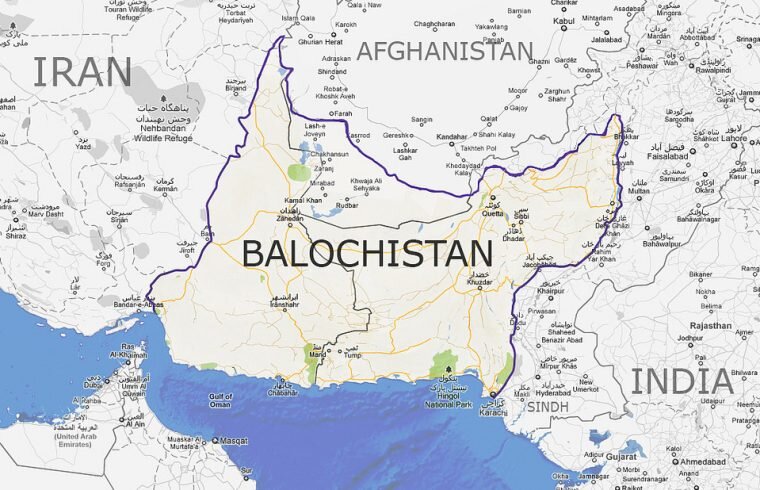
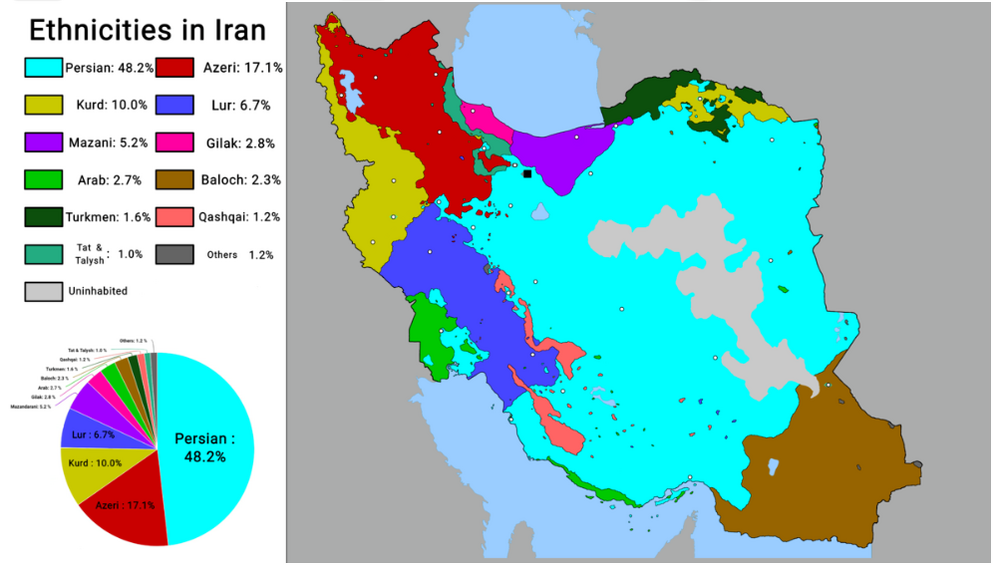
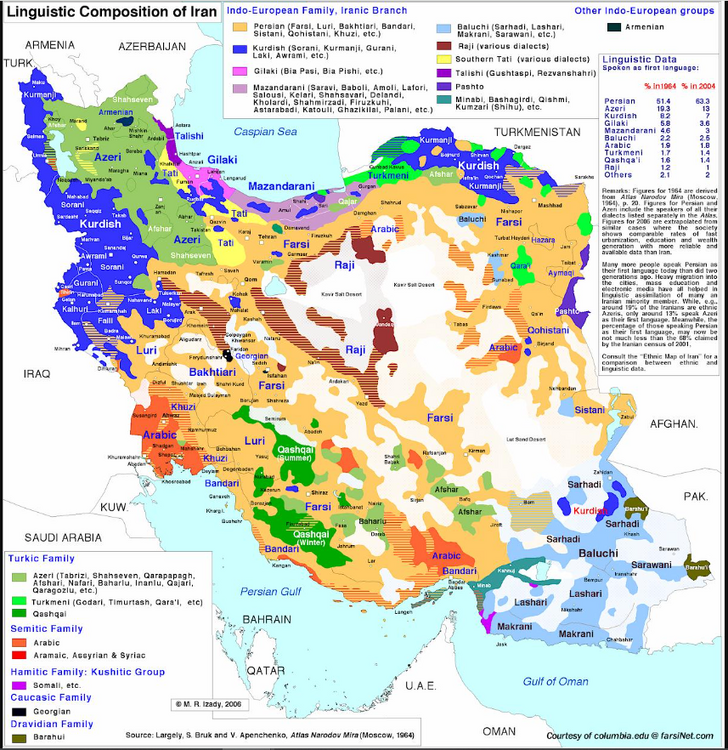
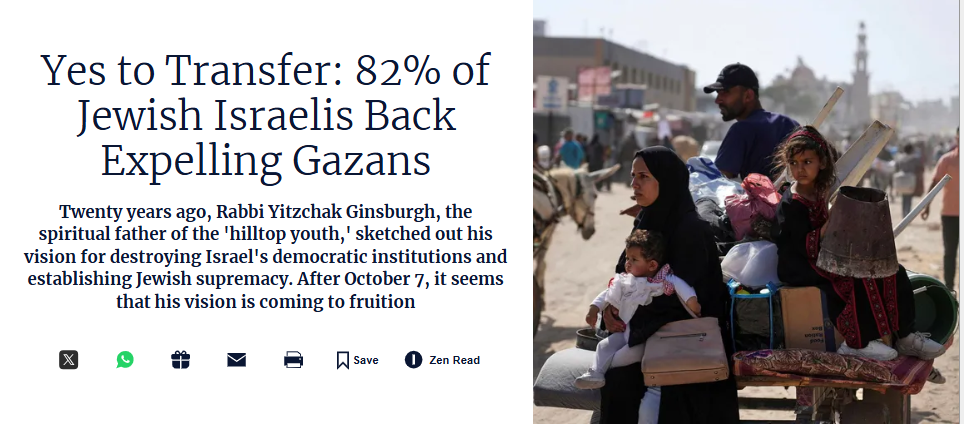
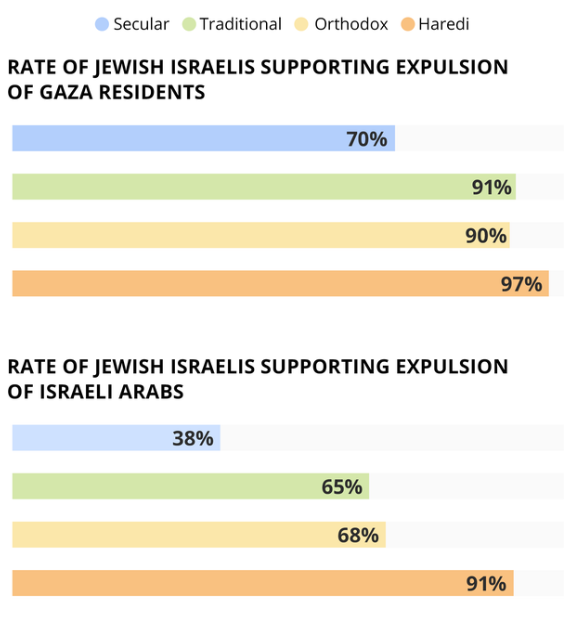
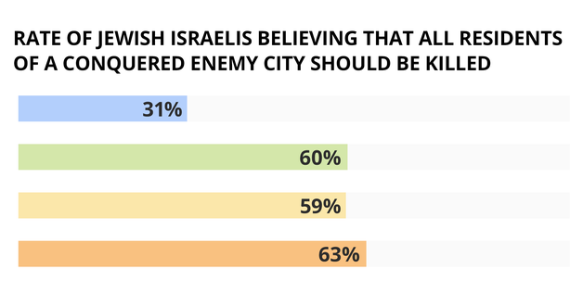
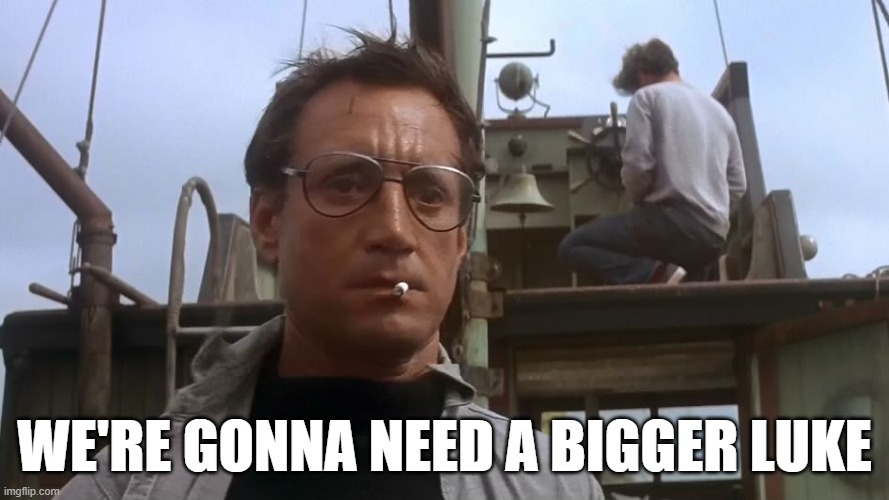
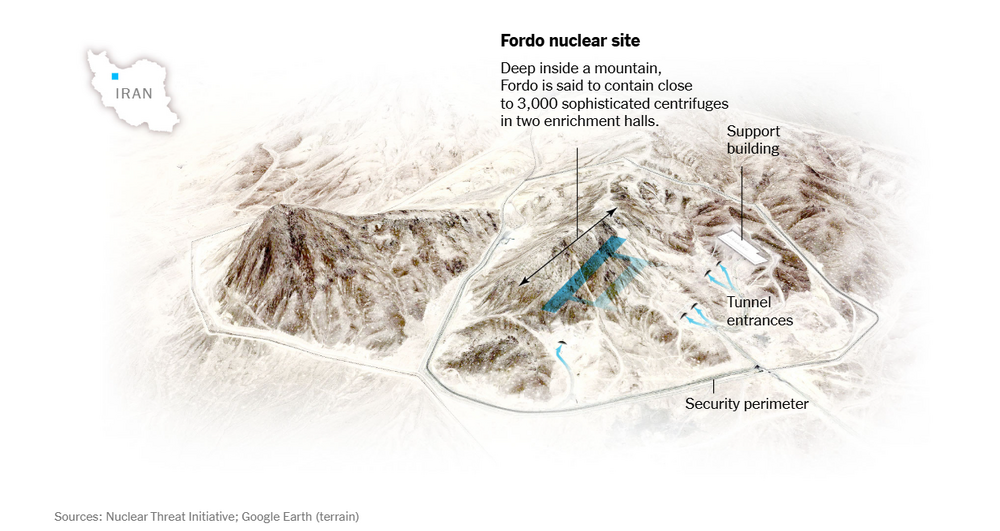


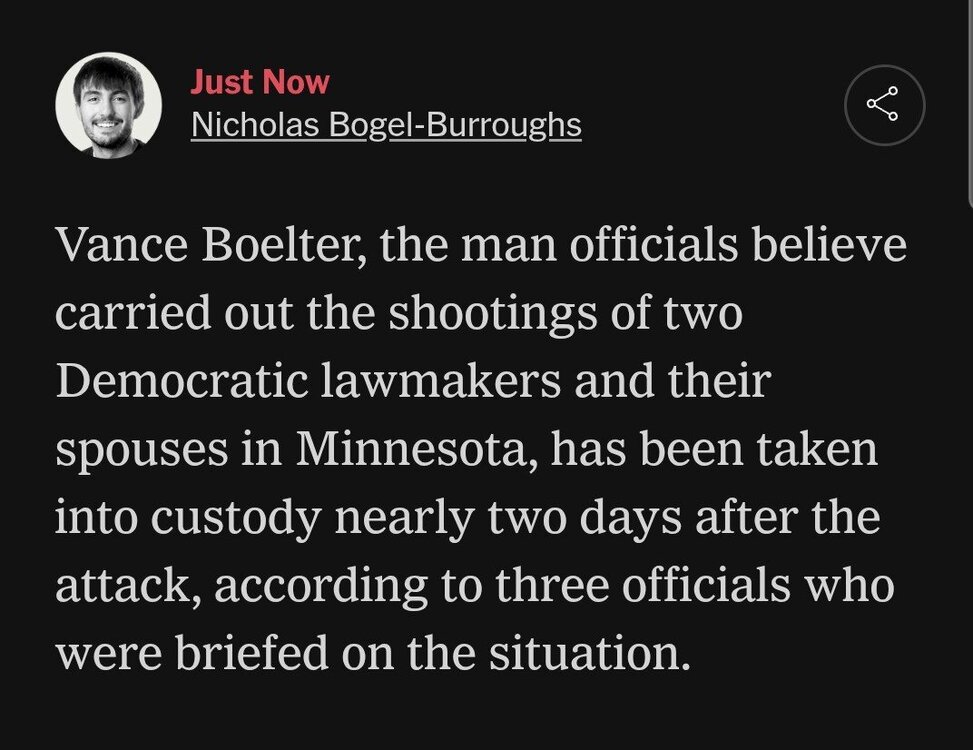
Israel vs everyone war thread
in Daily Texan
Posted
That all may well be true, but I'm trying to figure out or predict something unexpected that Iran might do next. If they're content to just draw it out, and lose, then that's a separate discussion, involving lots and lots of death and destruction. I just felt like there'd been enough talk about Bibi and DonDon for the moment, but I'm not going to force the topic if no one wants to try to envision other possible scenarios.